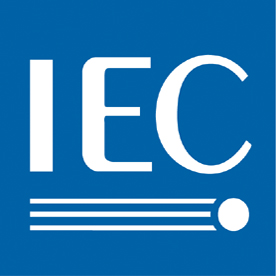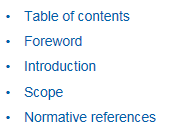ISO/IEC 15944-4:2007 Withdrawn
Information technology -- Business Operational View -- Part 4: Business transaction scenarios -- Accounting and economic ontology
Abstract
ISO/IEC 15944-4:2007 focuses on providing a definition of the concepts and the relationships that exist among those concepts in an Open-edi business transaction. Such a repository of conceptual definitions is termed a domain ontology for Open-edi.
It addresses the fundamental and definable aspects of a business transaction as it unfolds with business partners: first planning their activities, then identifying their prospective trading partners, then negotiating commitments for economic exchanges, and finally fulfilling those commitments with reciprocated transfers of economic resources. The key concepts required for an Open-edi business transaction, which are derived from the fields of accounting and economics, are defined.
ISO/IEC 15944-4:2007 provides the ontological specification with an enumeration of the primitive and derived data classes needed in a full economic exchange. These definitions are specified with class diagrams from the Unified Modelling Language (UML). This is the declarative component of the Open-edi Business Transaction Ontology (OeBTO).
ISO/IEC 15944-4:2007 identifies the procedural components of the OeBTO: its computable mechanisms for tracking progress through an actual business process where partners exchange information with each other as they progress through the Open-edi trading phases of planning, identification, negotiation, actualization and post-actualization. This progress is determined with specified state machine mechanics. ISO/IEC 15944-4:2007 finishes by identifying the constraint component of the OeBTO: its repository for business rules and assertions.
Cultural adaptability and integration with the other parts of ISO/IEC 15944 is provided by supplying a list of consolidated French definitions and by enumerating the two classes of Open-edi constraints. Theoretical background for the ontological components of the OeBTO is provided by enumerating the Resource-Event-Agent (REA) ontology as that work is being used in standards work with the United Nations Centre for Trade Facilitation and Electronic Business (UN/CEFACT).
Use of ISO/IEC 15944-4:2007 (and related standards) will facilitate the integration of these ontological definitions into specified, registered and re-useable eBusiness scenarios and scenario components.
It addresses the fundamental and definable aspects of a business transaction as it unfolds with business partners: first planning their activities, then identifying their prospective trading partners, then negotiating commitments for economic exchanges, and finally fulfilling those commitments with reciprocated transfers of economic resources. The key concepts required for an Open-edi business transaction, which are derived from the fields of accounting and economics, are defined.
ISO/IEC 15944-4:2007 provides the ontological specification with an enumeration of the primitive and derived data classes needed in a full economic exchange. These definitions are specified with class diagrams from the Unified Modelling Language (UML). This is the declarative component of the Open-edi Business Transaction Ontology (OeBTO).
ISO/IEC 15944-4:2007 identifies the procedural components of the OeBTO: its computable mechanisms for tracking progress through an actual business process where partners exchange information with each other as they progress through the Open-edi trading phases of planning, identification, negotiation, actualization and post-actualization. This progress is determined with specified state machine mechanics. ISO/IEC 15944-4:2007 finishes by identifying the constraint component of the OeBTO: its repository for business rules and assertions.
Cultural adaptability and integration with the other parts of ISO/IEC 15944 is provided by supplying a list of consolidated French definitions and by enumerating the two classes of Open-edi constraints. Theoretical background for the ontological components of the OeBTO is provided by enumerating the Resource-Event-Agent (REA) ontology as that work is being used in standards work with the United Nations Centre for Trade Facilitation and Electronic Business (UN/CEFACT).
Use of ISO/IEC 15944-4:2007 (and related standards) will facilitate the integration of these ontological definitions into specified, registered and re-useable eBusiness scenarios and scenario components.
Additional information
| Publication type | International Standard |
|---|---|
| Publication date | 2007-11-05 |
| Withdrawal date | 2015-03-25 |
| Edition | 1.0 |
| Available language(s) | English |
| TC/SC | ISO/IEC JTC 1/SC 32 - Data management and interchangerss |
| ICS | 35.240.60 - IT applications in transport and trade |
| Stability date | 2015 |
| Pages | 70 |
| File size | 854 KB |
The following test report forms are related:
Share your publications
Learn how to share your publications with your colleagues, using networking options.
Payment information
Our prices are in Swiss francs (CHF). We accept all major credit cards (American Express, Mastercard and Visa, JCB and CUP), PayPal and bank transfers as form of payment.
Keep in touch
Keep up to date with new publication releases and announcements with our free IEC Just Published email newsletter.
Contact customer services
Please send your enquiry by email or call us on +41 22 919 02 11 between 09:00 – 16:00 CET Monday to Friday.

